In an experiment to find the equivalent resistance of a series combination of two resistors R1 and R2,a student uses the circuit shown here. Will the circuit give the correct reading for current I and voltage V ? Justify your answer.
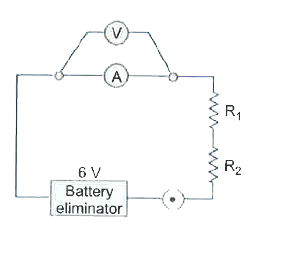
The circuit will give correct reading for current I but incorrect reading for voltage V . The voltmeter has to be put in parallel with the resistances being measured and not across the ammeter.
Topper's Solved these Questions
- PRACTICAL BASED QUESTIONSBOOK - VK GLOBAL PUBLICATIONCHAPTER - PRACTICAL BASED QUESTIONSEXERCISE - Experiment 6
4 Videos
- PRACTICAL BASED QUESTIONSBOOK - VK GLOBAL PUBLICATIONCHAPTER - PRACTICAL BASED QUESTIONSEXERCISE - Experiment 7
4 Videos
- PRACTICAL BASED QUESTIONSBOOK - VK GLOBAL PUBLICATIONCHAPTER - PRACTICAL BASED QUESTIONSEXERCISE - Experiment 4
6 Videos
- MANAGEMENT OF NATURAL RESOURCESBOOK - VK GLOBAL PUBLICATIONCHAPTER - MANAGEMENT OF NATURAL RESOURCESEXERCISE - HOTS (Higher Order Thinking Skills)
7 Videos
- SOURCES OF ENERGY BOOK - VK GLOBAL PUBLICATIONCHAPTER - SOURCES OF ENERGY EXERCISE - SHORT ANSWER QUESTIONS - II
16 Videos
Similar Questions
Two students perform the experiment on series and parallel combinations of two given resistors R1 and R2 and plot the following V-I graphs (a) and (b).
Which of the graphs is (are) correctly labelled in terms of the words 'series' and 'parallel'? Justify your answer.
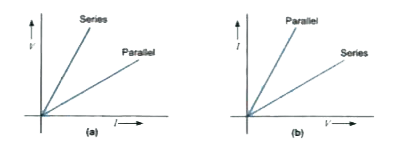
View SolutionFind the current I & voltage V in the circuit shown.
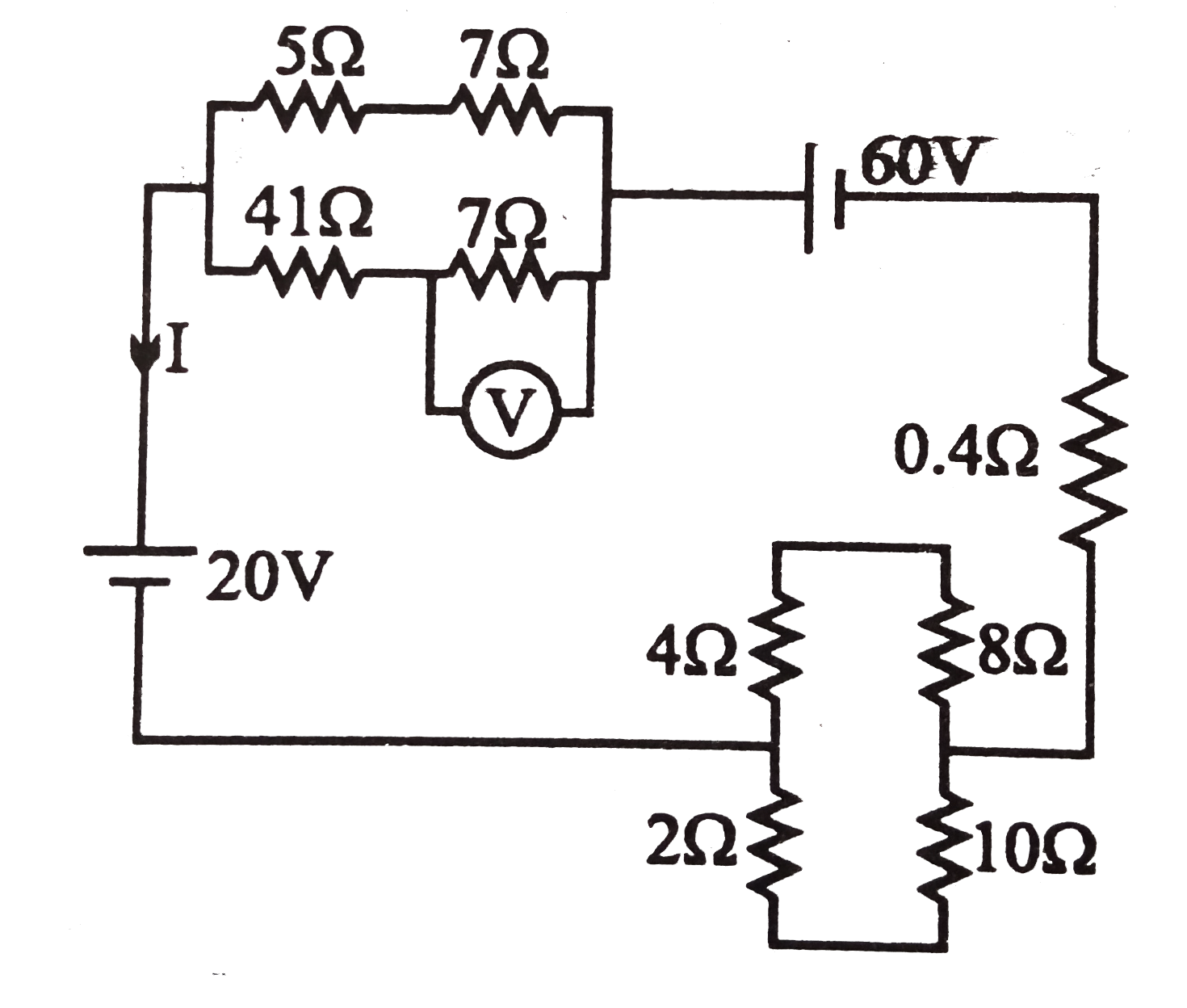
View Solution
Knowledge Check
In an experiment to find the equivalent resistance of two resistors connected in series, a student uses the circuit shown :
This circuit will give :
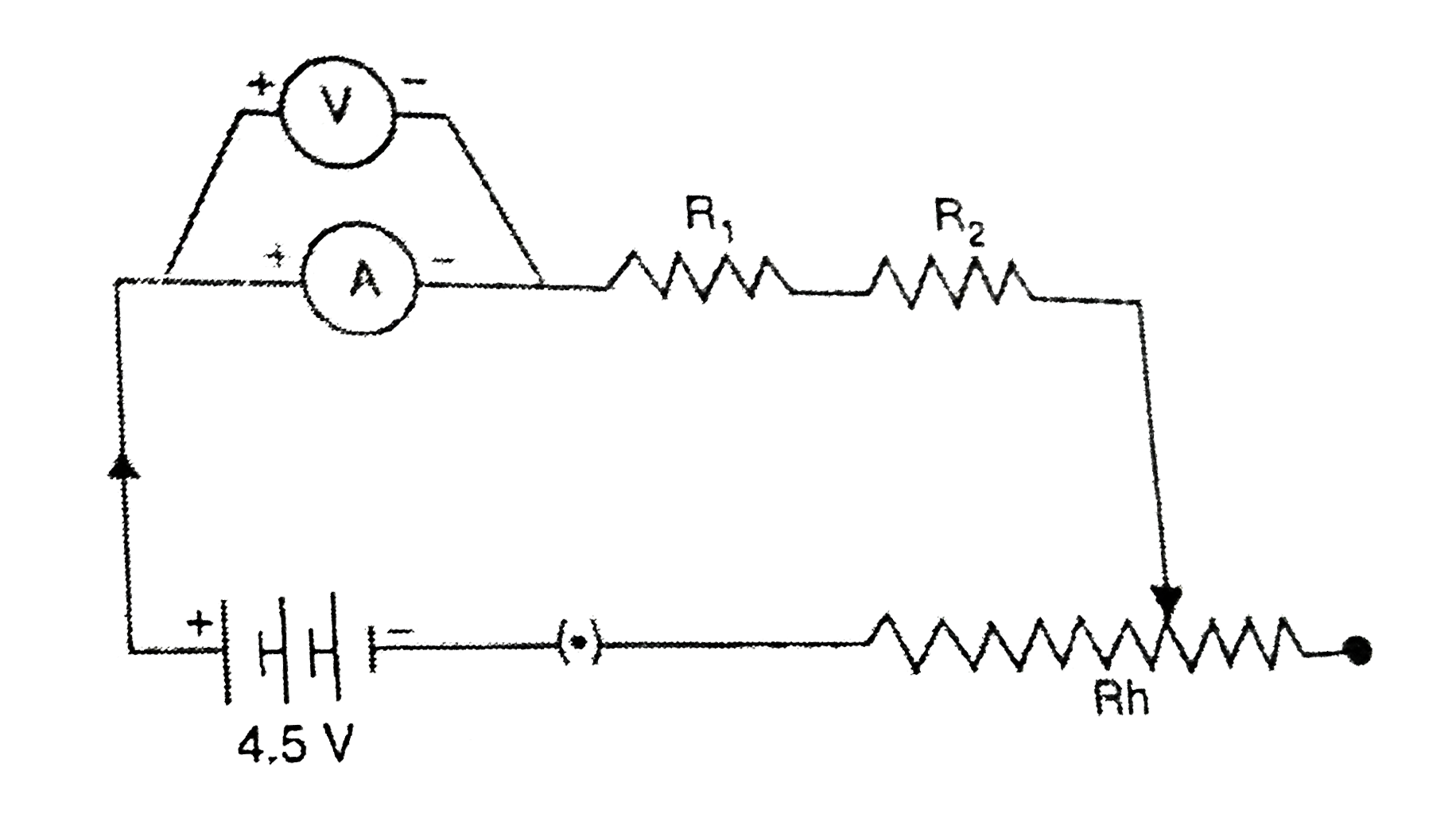 Acorrect reading for voltage V but incorrect reading for current IBcorrect reading for current I but incorrect reading for voltage (V)Ccorrect readings for both voltage V and current IDIncorrect readings for both current I and voltage V
Acorrect reading for voltage V but incorrect reading for current IBcorrect reading for current I but incorrect reading for voltage (V)Ccorrect readings for both voltage V and current IDIncorrect readings for both current I and voltage VIn order to determine the equivalent resistance of two resistors R1 and R2 connected in series, a student made this circuit for his experiment.
The only statement which is true for this circuit is that it gives :
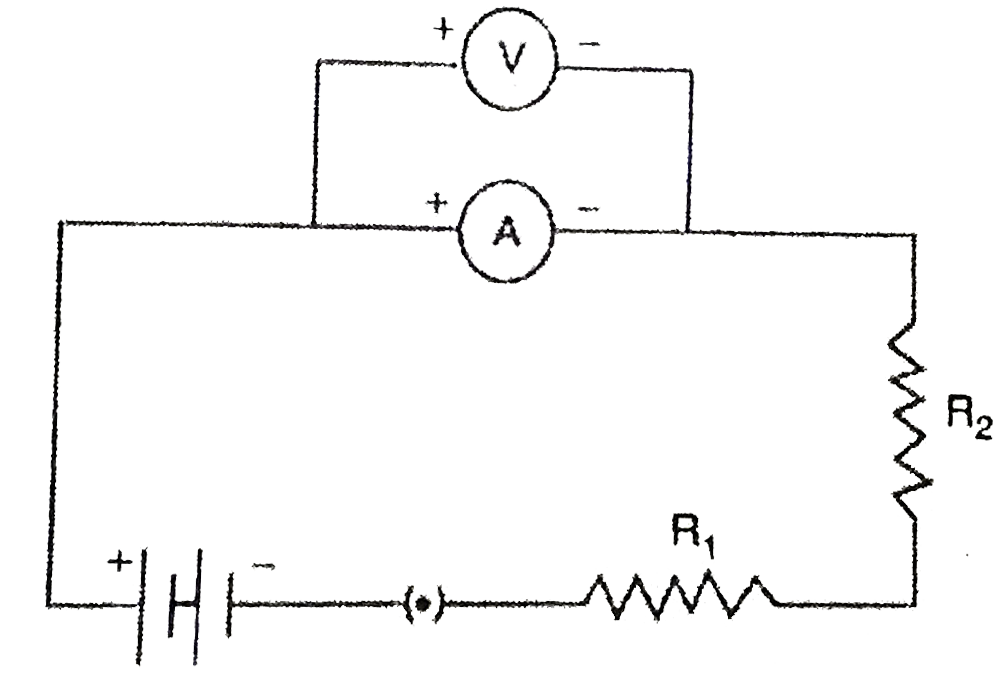 Aincorrect readings for current I as well as for potential difference VBcorrect reading for current I but incorrect reading for potential difference VCincorrect reading for current I but correct reading for potential difference VDcorrect readings for both current I and potential difference V.
Aincorrect readings for current I as well as for potential difference VBcorrect reading for current I but incorrect reading for potential difference VCincorrect reading for current I but correct reading for potential difference VDcorrect readings for both current I and potential difference V.A student stes up an electric circuit shown here for finding the equivalent resistance of two resistors in series :
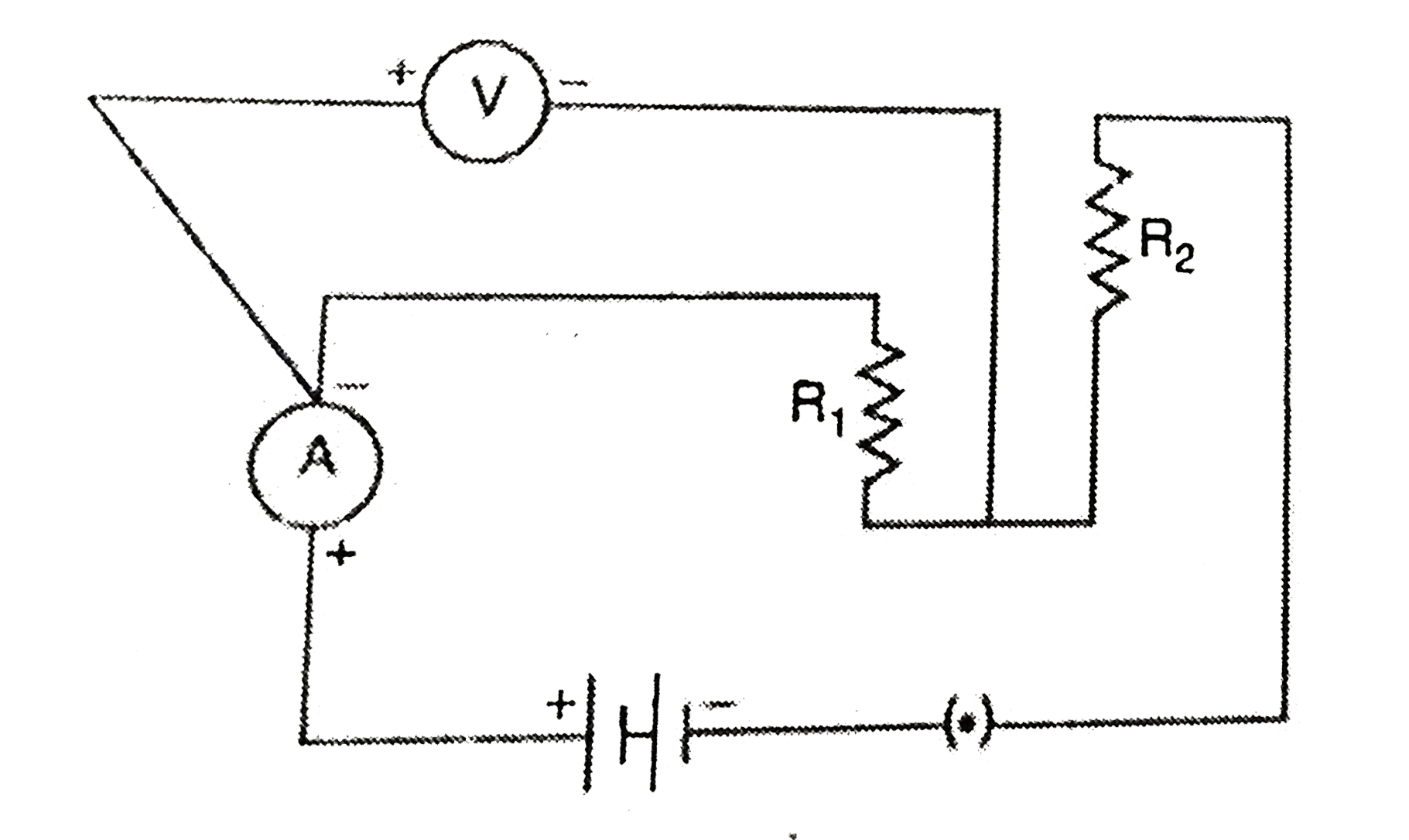
In this circuit, the :Aresistors have been connected correctly but the voltmeter has been wrongly connectedBresistors have been connected correctly but the ammeter has been wrongly connectedCresistors as well as the voltmeter have been wrongly connectedDresistors as well as the ammeter have been wrongly connected
Find the current I & voltage V in the circuit shown.
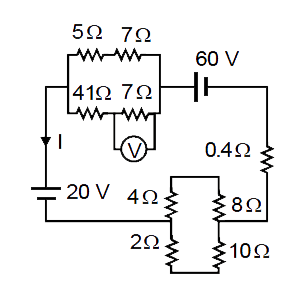
View SolutionA student did the experiment to find the equivalent resistance of two given resistors, R1 and R2 first when they are connected in series and next when they are connected in parallel. The two values of the equivalent resistance obtained by him were Rs and Rp respectively. Compare Rs and Rp.
View SolutionA student did the experiment to find the equivalent resistance of two given resistors, R1 and R2 first when they are connected in series and next when they are connected in parallel. The two values of the equivalent resistance obtained by him were Rs and Rp respectively. Compare Rs and Rp.
View SolutionTwo students perform experiments on series and parallel combinations of two given resistors R1andR2 and plot the following V -1 graphs [Fig. 5.24.]. Which of the graphs is/are correctly labeled in terms of the words 'series' and 'parallel'? Justify your answer.
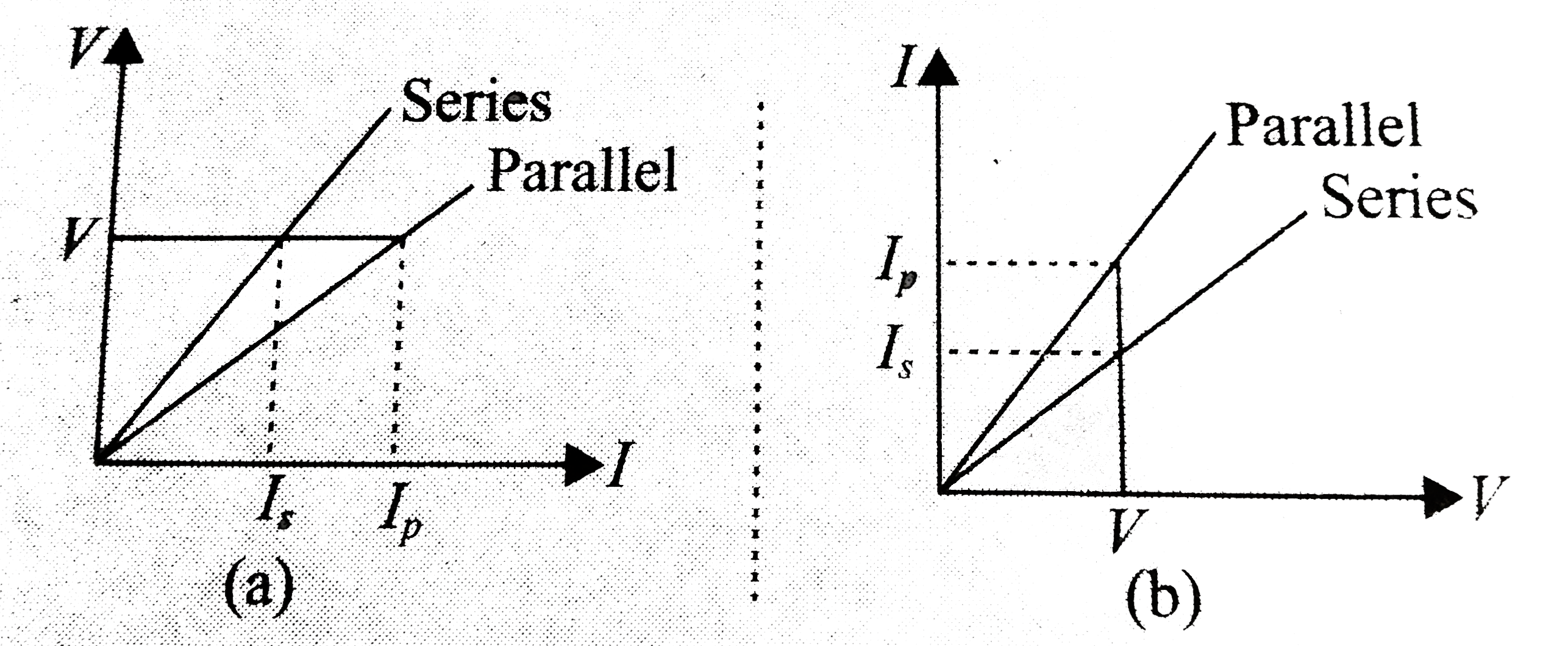
View SolutionTwo students perform experiments on series and parallel combinations of two given resistors R1andR1 and plot the following V -1 graphs [Fig. 5.24.]. Which of the graphs is/are correctly labeled in terms of the words 'series' and 'parallel'? Justify your answer.

View Solution
